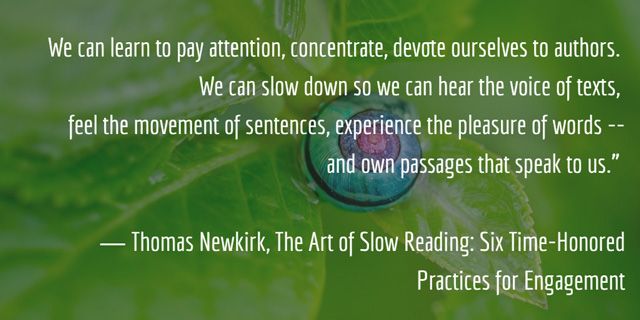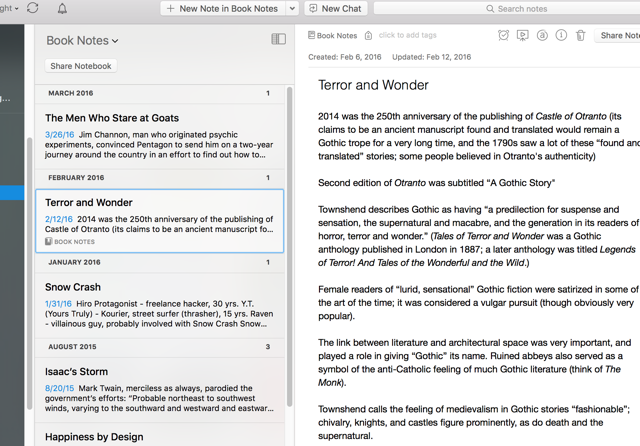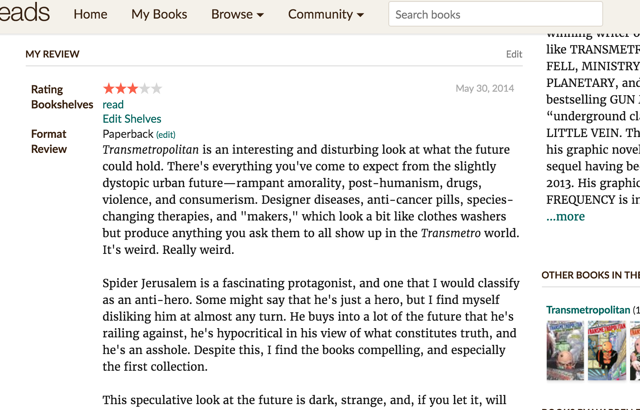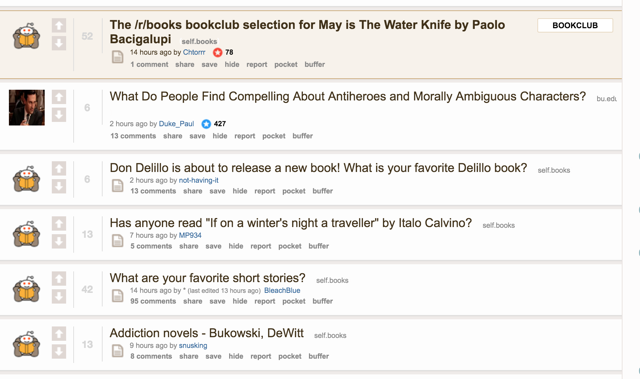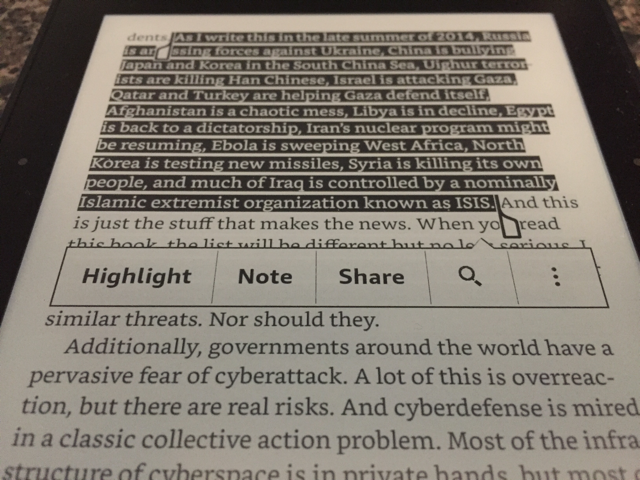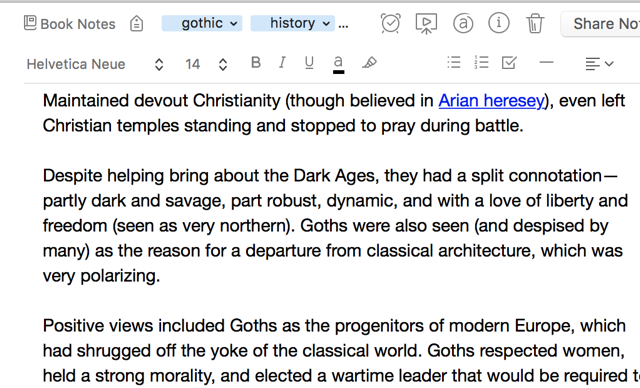Reading more is a great goal for anyone to take on -- books help us see into the lives of other people, spend time living in new countries, experience the challenges and victories of different eras, and learn more about the world around us.
But reading more isn't going to do you a whole lot of good if you can't remember anything that you read.
Improving reading retention benefits all readers. It applies to anything you read, whether that's textbooks, novels, academic journals, comic books, or online articles. The methods below use simple tools and ideas to help you better encode new memories in your brain, and will make a big difference in how well you're able to remember what you read.
First: Slow Down
Before we get into the specific tools and strategies for remembering more of what you read, I want to make a note. Speed reading is great if you want to get through as many words as possible without taking much time to do it, but it's not great for retention (here's an interesting study on regressions and comprehension; there are plenty of others out there).
If you want to remember what you read, you're going to have to slow down. Apps like Read Fast and Spreed are cool, but they're not going to help you remember very much. Instead, take the time to really read what you have in front of you and be engaged with it. You'll remember a lot more.
Create a Book Notes Repository
Taking notes on what you read is one of the most common tips out there for better remembering what you read, but not very many people tell you what you should do after that. My personal recommendation is to create a single place to keep all of the notes on what you've read. It could be a note-taking app, a folder on your computer full of text files, an organizational smartphone app, or even a single paper notebook.
My personal note-taking system is simple: I have a notebook in my Evernote account called "Book Notes", and I make a new note for each book I want to take notes on (I don't take notes on every book; just ones that I know I'll want to remember clearly). Within that note, I jot down anything I think is interesting. It could be a fact, a quote, an interesting plot device, a character that I think I might have trouble remembering, or even a link to a relevant Wikipedia article.
Wherever you decide to keep your notes, make sure it's with you at all times. I like using Evernote because I can access it on my computer, my iPhone, and my iPad, so I can always take notes, no matter where I am or which device I'm using to read. If you don't have access to your note-storage system, jot some notes on paper and type them in later. This might be a good idea anyway, as writing with a pen works better for encoding memories than typing on a keyboard.
Finally, and this is the most important part, go back and review your notes regularly.
This doesn't have to be a multi-hour study session. Just flip through your notes for a few minutes once or twice a week. You could read through all the notes from a single book, or skim a few notes from a number of things you've read. Repetition is an important part of memory, and reviewing your notes will help firmly implant what you've read in your long-term memory stores.
Write a Review
Like going over your book notes, writing a book review is a great way to refresh your recollection of a book. And if you know you're going to write a review of a particular book, you may read it a bit more carefully; you'll pick out passages you want to quote, make notes of things you didn't especially like, and try to create a cohesive whole of the book in your mind.
Your review doesn't have to be a newspaper-article-length affair; it could just be a few sentences, if that will help you remember what you read. When I review books on Goodreads, the reviews tend to be two to three paragraphs long. I can write them in ten minutes or so, and the additional repetition of the book's ideas help the story or facts stick with me.
There are lots of places you can write reviews of books without any pressure; Goodreads is my personal favorite, but you can review books on Amazon too, and /r/books is a great sub-reddit for discussing anything related to books. You could start your own blog, or even keep your reviews private and store them with your book notes.
If you keep your reviews to yourself, though, you'll miss out on the potential to talk about your books, which is another great way to keep them fresh in your mind.
Discuss What You Read
Take advantage of the fact that talking about the books you read is so helpful in remembering them. Joining or starting a book club is a great way to meet new people, spend time with your friends, and talk about books. There really isn't much that's better than that!
There are plenty of ways to meet people with similar interests, and using any of those methods will help you find a book club. If that doesn't work for you, there are lots of online book clubs that you can take part in, too. There are thousands of groups on Goodreads, many of which read and discuss books together.
Check out One Book One Facebook, Emma Watson's Our Shared Shelf, Oprah's Book Club, Online Book Club's forums, Well Read's book club, Booktalk.org, and the Reddit book club to see a few of the options out there.
Use the Features of Your Reader
If you're using an e-reader or tablet, there are likely some features built in that can help you take and store notes, as well as a convenient way to look back at them to refresh your memory.
The Kindle, for example, is great for creating highlights and notes on anything you read; just tap a word and hold, then slide to where you'd like the highlight to end. Select Highlight to highlight the text, or Note to jot a note on that block of text.
iBooks has similar functionality for making annotations, and even lets you highlight in different colors. While highlighting and making notes on your device doesn't have the same tactile benefits as highlighting or taking notes on paper, it does count as interaction with the book, and could be beneficial in helping you retain more information.
Both Kindle and iBooks highlights and notes can be exported and stored with your book notes as well, giving you even more to review and remember. The easiest way to do this is using the Bookcision bookmarklet for Kindle and the Digested app for iBooks.
Build Connections
Psychology offers a few tips for improving your information retention on items that you've read. For example, one of the ways that you can create stronger memories in your brain is to create connections between what you read and what you already know.
You can put this into practice using Evernote by linking between one of your book notes and another note that contains related information, so when you go back to review those notes, you'll be reminded of the connection between them. This helps with repetition for both pieces of information, making it significantly more likely that you'll remember both. Tagging your notes will help in a similar way.
Forming associations, whether between different ideas or between an idea and something else (like a location, in the method of loci, for example), is really effective in building memories. Using Evernote, Wikipedia, Reddit, or the Internet at large to form connections between ideas can be extremely effective.
I've found myself hopping around Wikipedia pages for hours, reading about related ideas. This helps you learn more and solidify your memories of what you've read.
Practice Focus
The inability to focus on what you're reading can be a major impediment to really learning what's in the text. If you're checking your email, thinking about your vision board, wondering what you'll do for lunch, or gazing out the window, it's going to be difficult to really encode into memory what you're reading.
Because of this, improving your ability to focus can be a huge help in learning more from what you read. How can you do that?
In addition to creating a distraction-free environment, you can meditate to improve your mind's ability to stay on one topic. We've discussed meditation many times, and you can read about apps that'll help you do it and why it's so good for you.
Start meditating just a little bit every day and make a conscious effort to be mindful throughout the rest of the day, especially when you're reading. It could make a huge difference in how much you remember.
Go Forth and Be Well-Read
Being well-read doesn't just mean that you've read a lot of books; it also means that you've learned from them and are able to talk about them (at least some of them, anyway). Making sure that you remember what you read, whether it's from a history textbook or a graphic novel, is a great first step.
Everyone is different, and a different set of tools and strategies will appeal to everyone. Try a few of these out and see what works for you. If you don't find what you need, keep trying new things! There are as many different ways to retain what you read as there are people reading.
Do you find it difficult to remember what you read? How do you make sure you retain as much as possible? Share your best tips and strategies below!
Image credit: ZIGROUP-CREATIONS via Shutterstock.


